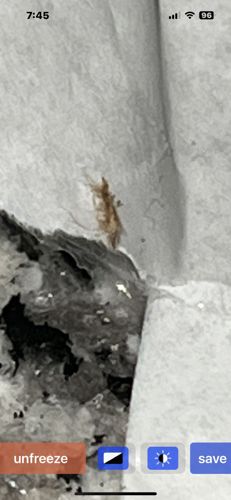Silverfish
Scientific Name: Lepisma saccharina
Order & Family: Order: Zygentoma, Family: Lepismatidae
Size: Typically 10-19 mm (0.4-0.75 inches) in length

Natural Habitat
Silverfish prefer cool, dark, and damp places. Common indoor habitats include bathrooms, basements, attics, kitchens, laundry rooms, and closets. Outdoors, they can be found under rocks, bark, leaf litter, and in bird nests or ant nests.
Diet & Feeding
Silverfish are scavengers and will eat a variety of starchy materials including books, paper, glue, fabric (especially cotton, linen, silk, and rayon), wallpaper paste, sugar, hair, dandruff, and sometimes other insects. They can survive for long periods without food if moisture is available.
Behavior Patterns
Silverfish are nocturnal, fast-moving, and prefer dark, moist environments. They are known for their destructive feeding habits on starches. They undergo ametabolous metamorphosis, meaning they continue to molt throughout their lifespan, which can be several years.
Risks & Benefits
Potential Risks: Primarily a pest, silverfish can cause significant damage to household items like books, important documents, wallpaper, and clothing by feeding on them. They do not bite humans, spread diseases, or contaminate food in the same way as some other pests. Potential Benefits: In outdoor ecosystems, they can contribute to decomposition, breaking down organic matter.
Identified on: 8/29/2025